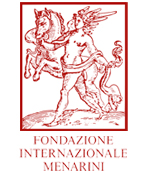
Press release
What to do when the heart doesn’t pump sufficiently. A meeting in Pisa
Pisa, 3 March 2015 - “Doctor, I get breathless after going up a few steps, I run out of breath, my feet and ankles swell, I can’t do what I used to do a few months ago ….”. Heart failure is a prison, the walls of which gradually close in around the patient who has more and more trouble doing his/her usual activities. The same pattern of signs and symptoms can be sustained by a deficiency in the pumping and contraction capacity of the heart “systoles” just like after a heart attack, or – and this is a lesser known condition by the public and a large section of medical operators - by a disease of the “diastoles”, that is, the relaxation phase of the heart. In other words, the heart contracts normally but it is much stiffer and has difficulty in accepting the incoming blood from the atria. This is known as “diastolic failure”, the disease of the diastoles which is the topic of a Convention (“Diastole Diseased” from 3 to 5 March in Pisa) and which, thanks to the Fondazione Menarini, offers scholars the chance to get together in one of the most beautiful cities in Tuscany under the guidance of Stefano Taddei and Michele Emdin, professors of Internal Medicine and Cardiology at the University of Pisa and the Scuola Superiore Sant'Anna, and Directors of the Internal Medicine and Cardiology Unit care of the University Hospital of Pisa and the Fondazione Toscana Gabriele Monasterio respectively. The convention will be held in the Research Centre of the CNR, thus highlighting the necessary link between clinical and translational research for advancing the diagnosis and treatment processes. In addition to leading experts in this sector, it will also be attended by young ‘under-40’ researchers who will present their research on the congress topic in a dedicated area and will be judged by their peers. Focus will be on the causes, the diagnostic approach (recently considerably improved thanks to the combination of ultrasounds, heart markers and advanced imaging, including cardiac magnetic resonance) and on therapeutic prospects, still an unresolved problem that must be faced with a modern approach which considers diastolic heart failure not so much as a unique phenotype, but instead, as a spectrum of diseases, given by the different aetiology, different degree of impairment, and the possible presence of a comorbidity. It is also necessary to search for a “precision” medical approach that guarantees the best cure for the individual patient, also with the treatments currently available. It is hoped that the Convention, in which hundreds of cardiologists, internists and general practitioners will be participating, will provide the necessary "step forwards" for being able to claim greater efforts by the scientific community as the basis for future research in the field of diastolic diseases.
Download Press release in PDF:
Download PDF